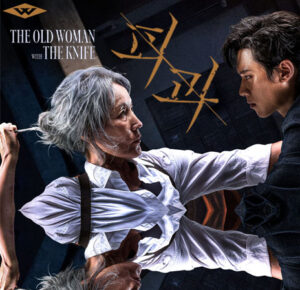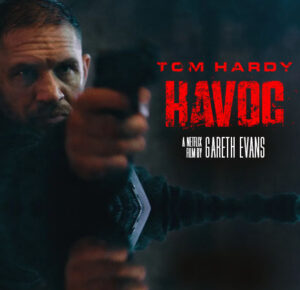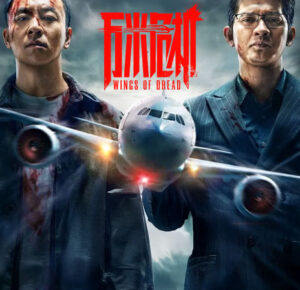
“Shanghai 13” Chinese Theatrical Poster
Director: Chang Cheh
Cast: Chiang Ming, Ti Lung, Cheng Tien Chi, David Chiang, Lee Chung Yat, Chi Kuan Chun, Wong Ching, Chiang Sheng, Leung Kar Yan, Lu Feng, Chai Kai, Chan Sing, Chen Kuan-tai, Cheung Taai Lun, Jue Hoi Ling, Andy Lau, Danny Lee, Jimmy Wang Yu, Wang Chung, Clement Yeh
Running Time: 85 min.
By Martin Sandison
The great Chang Cheh – one of the most revered, prolific and revolutionary directors of all time – created some of the greatest innovative kung fu movies. By 1984 he was 60, and was considering retirement. To fund this, he made one of the most ridiculously action- packed and star-packed kung fu films of all time: Shanghai 13. With a veritable smorgasbord of action stars from the classic Shaw Brothers era, this is cinematic heaven. Made in Taiwan on a pretty small budget, Chang virtually started most of the stars of the films careers they agreed to appear, no matter how small their part. The film ultimately is a celebration of the classic kung fu film; the movie techniques that Chang made famous, the stars he discovered, the perfunctory storylines. This creates a depth that goes beyond how silly the film appears on the outset, and ensures its place as one of the all time greats.
The credit sequence for the movie is unfeasibly cool as a funky but tinny song plays and each actors face appears in illustrated form. The plot is undoubtedly throwaway, just a vehicle for as many stars to appear as possible. The film is set in 1920’s Shanghai, and involves a patriot called Gau attempting to deliver important documents to Hong Kong and an army of traitors after him. Basically every scenario revolves around Gau being escorted by patriots, and traitors attempting to kill him. That means there is a fight in every scene! The match ups are positively mouth watering, and the choreography and filming of them is top notch.
Action direction is credited to five different film makers, the first being Lau Kar Wing. Younger brother of the legend that was Lau Kar Leung (RIP), by 1984 he had proven himself as one of the greatest performers and choreographers of the golden age. He appeared in and worked behind the scenes of countless classics, including The Odd Couple with Sammo Hung. That movie is, in my opinion, the greatest classical weapons film ever made. He also fought his older brother in the second best classical weapons film ever made, Legendary Weapons of China! Two of the Venoms, Chiang Sheng and Lu Feng, also serve as choreographers on Shanghai 13, who by this point had worked on numerous Venoms films and had become very accomplished.
Next is Wong Gwok Chue, a veteran who also worked on Scorching Sun, Fierce Winds and Wild Fire, starring Tan Tao Liang and Chang Yi (one of the greatest Independent kung fu movie villains). And last but not least Ricky Chen Tien Chi, who also has a large part in Shanghai 13. He was first credited choreographer on Mystery of Chess Boxing, one of the all time classic Independent kung fu movies, and appeared in plenty of Shaw Brothers and other Independent productions. Chang Cheh really pulled out the stops on talent behind the camera, but onscreen the talent pedigree goes through the roof.
The first star to appear is Jimmy Wang Yu, and despite his non-fighting role, the one-armed swordsman makes an impact. Next up is Chen Kuan Tai, who does a little fighting and is as regal and composed, as always. Danny Lee plays a sniper, exuding coolness and channelling his persona from the Heroic Bloodshed classic City on Fire (finally got to mention it!). Co-choreographer Chiang Sheng pops in as the fights start to heat up, battling three heavies while still having a cigarette holder in his mouth! He shows his natural aptitude for acrobatics here.
The next scene features the non-martial artist legend Beardy (Leung Kar Yan) hanging out in his plush apartment with a bevy of pretty ladies, just being Beardy. He is interrupted by Venom Lu Feng (looking ripped and up for a fight), and one of the best fights in the film proceeds. There is a magnificent shapes hand exchange between the two, which had me in that zone of martial arts movie awestruck consciousness. Beardy even fights on with numerous injuries, referencing that other Chang Cheh masterwork Boxer From Shantung.
Then a very young Andy Lau shows up (complete with cool white outfit and converse) and despite some doubling, he delivers some fine flowing martial artistry. Here the filming techniques amp up, with reverse photography and clever editing to paper over the cracks. Chang clearly knows what he is doing: creating a visual festival of all the innovations he made famous.
The next scene features Toby Chi Kuan Chun and David Chiang, two of the masters of kung fu cinema, as they go at it with Ga Hoi (a recognisable face especially from the shapes genius 7 Steps of Fung Fu) and Wong Chung, a veteran Shaw Brothers and Indie bit part actor. All four perform admirably, with Chiang really cutting loose. He even has an exploding pocket watch that he puts to good use!
The best entrance for any character is undoubtedly Ti Lung, as he appears to save Gao by slitting two guys throats. The camera centres on his iconic face complete with moustache, cool hat and pipe. The final fight (and the whole film really) is a fan’s dream. Two big surprises are the inclusions of Chen Sing and Sonny Yu. Chen Sing suddenly arrives on the scene, looking a little overweight – sporting a Karate suit – diving into the action with abandon. By this point he had moved away from Shaws to star in innumerable Indie flicks, with his nickname “The Chinese Charles Bronson.” His battle with Ti Lung is one for the ages, despite it not being as intricate as other sections of the action. Sonny Yu was a relatively new star compared to the rest of the cast, with only a few films under his belt. His technique is exemplary especially in kicking, and he more than holds his own.
When this film finished I was spent. But in a euphoric way. I would urge any fan of kung fu cinema, whatever age or stage, to check this undoubted masterpiece out (available on DVD from Terracotta). Despite not being Chang Cheh’s swan song (that would come in 1993 with Ninja In Ancient China), it is a fitting jewel in the crown of his unbelievable filmography.
Martin Sandison’s Rating: 10/10






















12 Comments